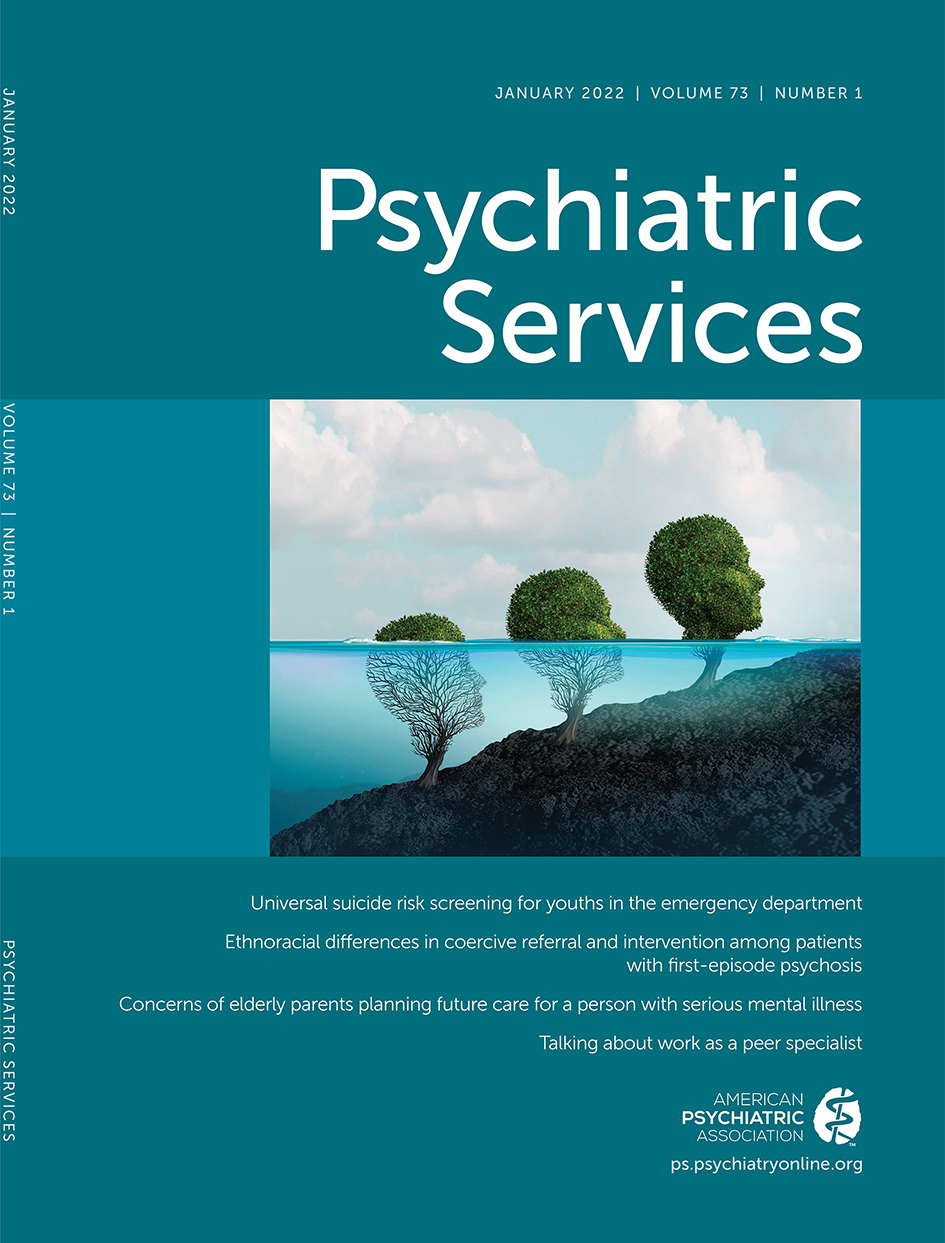The Most Important Resources to Prevent Homelessness According to Veterans: Results From the CHALENG Survey, 2019–2021
TO THE EDITOR: Homelessness among U.S. military veterans remains a major societal concern and an important public health problem. The demographics of the homeless veteran population have changed over the past decade as homeless veterans have become older and more racially diverse (1). It is important to understand the needs of a changing homeless veteran population to inform resource allocation, program development, and policies for this population.
Project Community Homelessness Assessment, Local Education and Networking Groups (CHALENG) was launched by the U.S. Department of Veterans Affairs (VA) in response to Public Law 102–405 to enhance the continuum of services for homeless veterans provided by VA health care facilities and community service agencies. Part of the role of Project CHALENG is to conduct an annual national survey of homeless veterans to assess their needs. This survey is distributed by VA staff and community providers and has been conducted annually for over two decades (2). Details of the CHALENG survey have been described elsewhere (3).
We analyzed responses from homeless veterans to one open-ended question on the CHALENG survey from 2019 to 2021: “Please tell us in your own words: What is the most important resource/service that could help end your homelessness now, or if you are formerly homeless, what is the most important resource that will prevent you from being homeless in the future?”
A total of 1,871 responses were collected from homeless veterans participating in the CHALENG survey from 2019 to 2021. Two staff independently reviewed each response, developed a codebook, and coded the responses. The final codebook consisted of 17 categories; some veteran responses were coded into multiple categories, resulting in 2,100 total codes.
As shown in the supplementary table, across 3 years, the top categories that veterans reported were the “most important resource/service” for ending their homelessness were, in order, housing, finances, employment, benefit guidance, counseling and treatment, and guidance and mentorship. The three least frequently coded categories were eviction prevention, education, and spirituality.
These findings are consistent with the extant research literature, particularly around tangible housing and financial needs (4, 5). Perhaps more revealing was that homeless veterans also reported that counseling and treatment as well as guidance and mentorship were the most important resources/services in ending their homelessness. These areas are often not assessed in quantitative survey items, including the CHALENG.
The VA is a comprehensive health care system that offers specialty mental health care to eligible veterans, but some homeless veterans may have difficulties accessing office-based counseling and mental health treatment. In these circumstances, providing outreach and onsite services where homeless veterans reside may increase access. In regard to needs for guidance and mentorship, many VA homeless and mental health programs employ peer specialists who may be able to uniquely meet these needs given their lived experiences.
In conclusion, our analysis reveals insights about important resources and services for homeless veterans in their own words. Tangible housing and financial supports are essential, but there is also an expressed need for emotional and psychological support to resolve homelessness.
1 : Changing demography of homeless adult populations. Perspect Public Health 2021; 141:177–184Crossref, Medline, Google Scholar
2 : Needs of homeless veterans: 5 years of the CHALENG Survey 2012–16. J Public Health 2019; 41:e16–e24Crossref, Google Scholar
3 : The Seventeenth Annual Progress Report: Community Homelessness Assessment, Local Education and Networking Group (CHALENG) for Veterans Fiscal Year (FY) 2010: Services for Homeless Veterans Assessment and Coordination. Washington, DC, US Department of Veterans Affairs, 2011Google Scholar
4 : Homelessness Among US Veterans: Critical Perspectives. New York, Oxford University Press, 2018Crossref, Google Scholar
5 : Financial strain and suicide attempts in a nationally representative sample of US adults. Am J Epidemiol 2020; 189:1266–1274Crossref, Medline, Google Scholar



